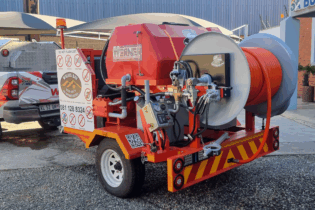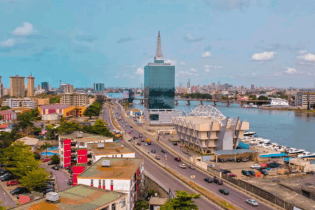Report on the Borderless Conference, held in Accra, Ghana, on21ST – 22ND February 2013
Borderless Alliance is a private sector-driven organization, partnered with regional organizations such as UEMOA, USAID, EU, West Africa Trade Hub, etc. and made up of various leading companies in West Africa. It has a Board of advisors, an executive committee, a managing director with a secretariat and several country national committees. Its strategy was to leverage resources and address the primary issues affecting transport and facilitation in West Africa. Its major funder was WATH and talks were in progress with DIFD, for further funding. The 7 executive committee members were elected in May 2012. National committees have been created in Cote d’Ivoire, Benin and Burkina Faso. Borderless information centres have been set up at six borders. Borderless organized the annual conference, with the support of USAID West African Trade Hub and several other sponsors. It was the second such conference. Its objectives were to inform the delegates on progress with improving intraregional trade in West Africa and how to accelerate this progress. Around 120 delegates attended. FESARTA’s travel and accommodation was kindly paid for by the West Africa Trade Hub, and it was invited to give a presentation on what was happening to improve road transport in East and Southern Africa. The conference was opened by the Minister of Trade and Industry for Ghana and the Minister of Transport for Burkina Faso. It was clear that the barriers to trade along the corridors have reduced significantly since UEMOA and the USAID Trade Hub started monitoring the corridors 6 years ago.However, excessive numbers of checkpoints along the corridors and the bribes they elicited, were still the major problems.
Borderless produced a Truck Driver’s guides for Ghana, Togo, Burkina Faso, Mali and Cote d’Ivoire. FESARTA was to work with Borderless and share experiences with the FESARTA East and Southern African Road Transport Corridor Handbook. The main issue of importance for FESARTA, was transport liberalization in West Africa. The ECOWAS Inter State Road Transport (ISRT) regulation was promulgated in 1982. It was the main hindering piece of legislation in the region. Bi-lateral agreements had been set up between countries, as requirements of the ISRT. Strategic cargo had to be transported from the ports by domestic trucks. Ie, imports through all the ports, were reserved for the trucks registered in those port countries. Other non-strategic cargo could be transported by foreign trucks. There were 1/3 and 2/3 rules in place for this cargo and bi-lateral agreements determined the proportion of cargo to be carried by the trucks of the different countries. “Associations” have grown to accommodate the regulation of transport, particularly the shippers’ councils. An axle load of 11.5 tons was accepted by the UEMOA and ECOWAS, though there was not a harmonized load limits and overloading control system. The overall impression was that West Africa was somewhat behind East and Southern Africa wrt the regulation and management of its road transport system. Part of this was due to the political division amongst member states. There were several North-South Corridors (mainly within member states), but few East-West Corridors that cut across member states. Even though the countries were small and many, there was little cross-border harmonization. Hence cross-border transport was slow and costly. The conference gave FESARTA the opportunity to network with West African transport officials and organizations, and this could lead to useful cooperation in the future. Barney Curtis.






